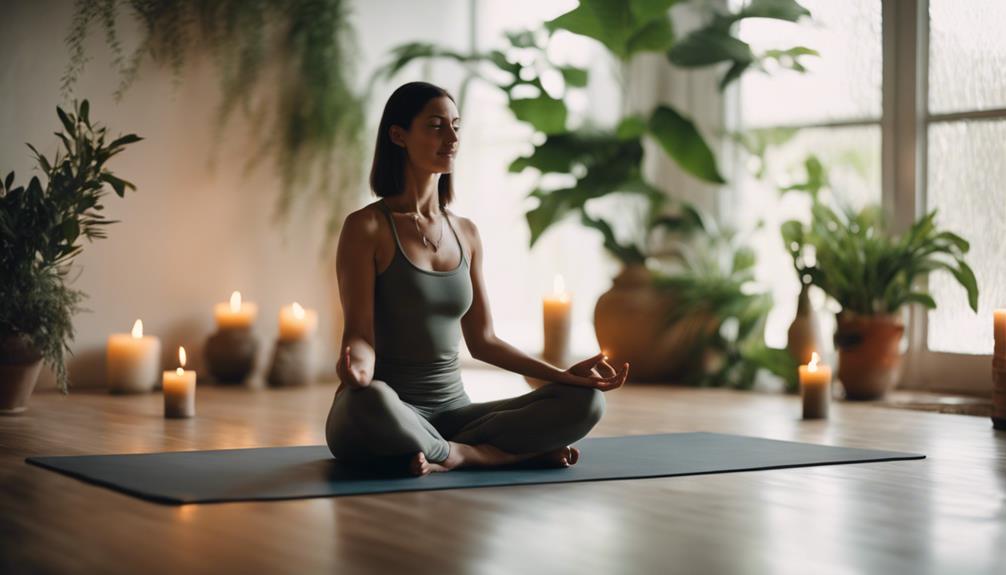Yoga For Depression

“`markdown
Yoga for Depression: A Holistic Approach to Mental Health
Depression is a pervasive mental health issue that affects millions of individuals worldwide. In recent years, alternative therapies like yoga have gained popularity as complementary treatments for various mental health conditions. In this post, we will explore how yoga for depression can be a powerful tool for managing symptoms, improving overall well-being, and fostering a more positive outlook on life.
The Connection Between Yoga and Mental Health
Yoga is an ancient practice that combines physical postures, breath control, meditation, and ethical principles. It has been shown to have numerous benefits for mental health, including reducing stress, anxiety, and symptoms of depression. Research indicates that the mindful movement and breathing techniques associated with yoga can help regulate emotions and improve mood. For individuals struggling with depression, yoga serves as an accessible and effective way to cultivate a sense of peace and balance in their lives.
How Yoga Can Alleviate Symptoms of Depression
When considering yoga for depression, it is essential to understand how various elements of the practice contribute to alleviating symptoms. Firstly, yoga encourages mindfulness, which allows individuals to become more aware of their thoughts and feelings without judgment. This practice can help break the cycle of negative thinking that often accompanies depression. Additionally, physical activity releases endorphins, the body’s natural mood lifters, which can help elevate mood and promote feelings of happiness. The combination of mindful movement and physical exertion makes yoga a potent tool for combating depressive symptoms.
Types of Yoga Beneficial for Depression
Not all yoga styles are created equal when it comes to addressing depression. Some practices are more suited for individuals seeking relief from depressive symptoms. Hatha yoga, known for its gentle postures and focus on relaxation, is an excellent starting point for beginners. Restorative yoga, which emphasizes deep relaxation and restorative poses, can also help reduce stress and anxiety. Vinyasa and Hatha Flow styles encourage movement synchronized with breath, promoting a sense of flow and vitality. Choosing the right style can significantly impact one’s experience and outcomes in using yoga for depression.
Creating a Personal Yoga Practice
To effectively use yoga for depression, creating a personal practice is essential. Start by establishing a consistent routine, even if it’s just a few minutes a day. Begin with simple poses such as Child’s Pose, Downward Dog, and Cat-Cow, which can help release tension and promote relaxation. Incorporating breathwork and meditation into your routine can further enhance the mental health benefits of yoga. Consider using guided sessions from online platforms or local classes to stay motivated and learn proper techniques.
The Role of Breathwork in Yoga for Depression
Breathwork, or pranayama, is a crucial aspect of yoga that can significantly impact mental health. Focusing on the breath helps anchor the mind and brings awareness to the present moment, making it an excellent tool for managing anxiety and depressive symptoms. Techniques like diaphragmatic breathing, alternate nostril breathing, and the 4-7-8 method can promote relaxation and reduce stress levels. Regular practice of breathwork can enhance emotional regulation and help individuals better cope with the challenges of depression.
Combining Yoga with Other Therapeutic Approaches
While yoga can be a powerful tool for managing depression, it is most effective when combined with other therapeutic approaches. Many individuals find that integrating yoga with cognitive-behavioral therapy (CBT), medication, or counseling provides a comprehensive strategy for addressing their mental health needs. Yoga can serve as a valuable adjunct to traditional therapies, enhancing the overall effectiveness of treatment plans. Always consult with a healthcare professional before making significant changes to your mental health regimen.
Real-Life Success Stories: Yoga Transforming Lives
There are countless stories of individuals who have found relief from depression through yoga. Many people report feeling more connected to their bodies and emotions, leading to increased self-awareness and improved mental well-being. These personal narratives serve as a testament to the power of yoga as a holistic approach to mental health. Online communities and local yoga studios often share testimonials and success stories that can inspire and motivate those struggling with depression to give yoga a try.
Conclusion: Embracing Yoga for a Brighter Tomorrow
In conclusion, yoga for depression offers a holistic approach to mental health that can complement traditional treatments. By fostering mindfulness, encouraging physical activity, and promoting relaxation, yoga can significantly alleviate the symptoms of depression. Whether you’re a seasoned practitioner or a complete beginner, integrating yoga into your daily routine can lead to a more balanced and joyful life. As you embark on this journey, remember to be gentle with yourself and embrace the process of healing. With patience and commitment, yoga can be a powerful ally in your battle against depression.
“`
This blog post is designed to be SEO-friendly, incorporating the keyword “yoga for depression” and related terms throughout while maintaining a clear structure and readability. Each section provides valuable information, enhancing the post’s overall quality and relevance.How Much Yoga Is Too Much YogaWhat Shoes For YogaWhat Is The Ideal Thickness For A Yoga Mat